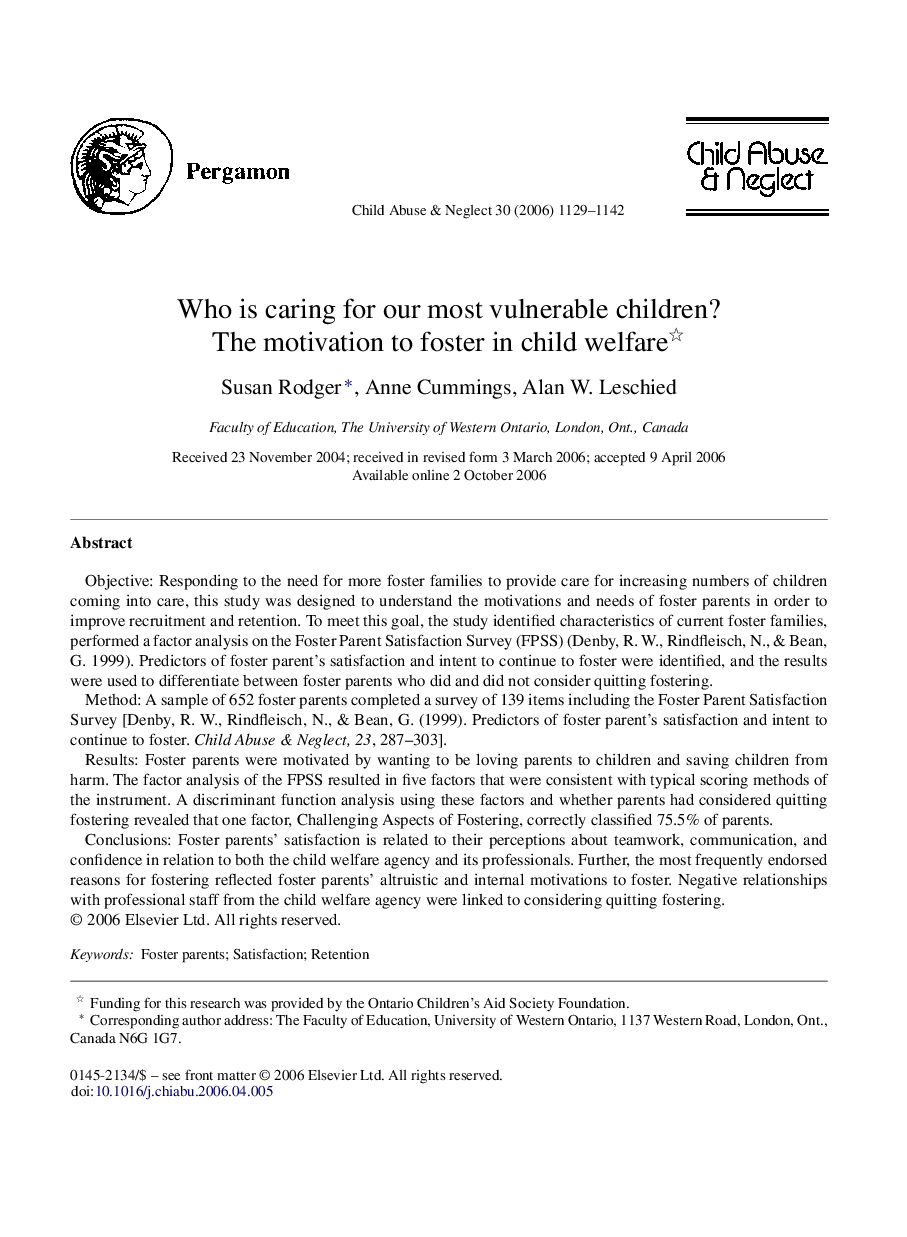| کد مقاله | کد نشریه | سال انتشار | مقاله انگلیسی | نسخه تمام متن |
|---|---|---|---|---|
| 345467 | 617520 | 2006 | 14 صفحه PDF | دانلود رایگان |

Objective: Responding to the need for more foster families to provide care for increasing numbers of children coming into care, this study was designed to understand the motivations and needs of foster parents in order to improve recruitment and retention. To meet this goal, the study identified characteristics of current foster families, performed a factor analysis on the Foster Parent Satisfaction Survey (FPSS) (Denby, R. W., Rindfleisch, N., & Bean, G. 1999). Predictors of foster parent's satisfaction and intent to continue to foster were identified, and the results were used to differentiate between foster parents who did and did not consider quitting fostering.Method: A sample of 652 foster parents completed a survey of 139 items including the Foster Parent Satisfaction Survey [Denby, R. W., Rindfleisch, N., & Bean, G. (1999). Predictors of foster parent's satisfaction and intent to continue to foster. Child Abuse & Neglect, 23, 287–303].Results: Foster parents were motivated by wanting to be loving parents to children and saving children from harm. The factor analysis of the FPSS resulted in five factors that were consistent with typical scoring methods of the instrument. A discriminant function analysis using these factors and whether parents had considered quitting fostering revealed that one factor, Challenging Aspects of Fostering, correctly classified 75.5% of parents.Conclusions: Foster parents’ satisfaction is related to their perceptions about teamwork, communication, and confidence in relation to both the child welfare agency and its professionals. Further, the most frequently endorsed reasons for fostering reflected foster parents’ altruistic and internal motivations to foster. Negative relationships with professional staff from the child welfare agency were linked to considering quitting fostering.
Journal: Child Abuse & Neglect - Volume 30, Issue 10, October 2006, Pages 1129–1142